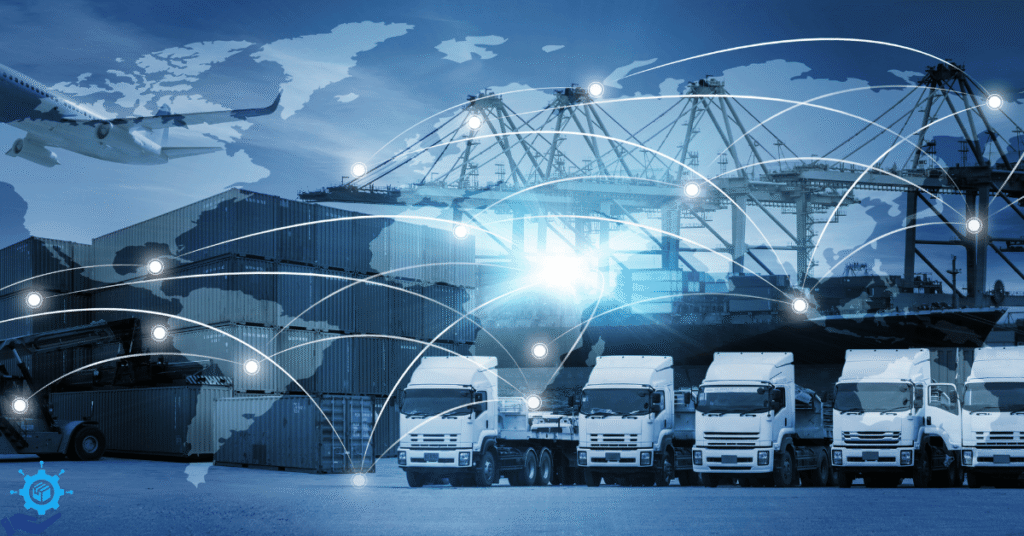What Is a Logistics Provider?
However, probably the largest provider of logistics services is a provider responsible for various activities leading including all transport transactions, warehousing, inventory management to order fulfillment, and distribution.
Logistics Provider Types of Classifications
- First-party logistics (1PL): Logistics services offered by the company in-house.
- Second-party logistics (2PL): A service provider that has transport and storage services.
- Third-party logistics (3PL): Logistics providers provide total services within or larger distribution side of supply chain management.
- Fourth-party logistics (4PL): This term is used to describe the whole spectrum of the supply chain that would otherwise be outsourced by the client entity-cum-party, guaranteeing the company the promises of service delivered by such providers.
Need for a logistics provider in the business.
Of course, establishing relationships with logistics providers provides several benefits:
1. Cost Reduction
In one way or another, effective logistics service providers ensure massive savings on account of economies of scale and good negotiations with transporters, planners, or route finders. A properly organized logistics division, in charge of operating the fleet and warehouses, contributes significantly to help the costs of the entity.
2. Knowledge & Experience
A logistics service provider with adequate domain knowledge brings very task-specific expertise to solve many common yet intricate business and customs issues.
3. Primary Ability of Technological Integration
Any advanced enterprise collaborates with the best logistics partner; its systems are real-time monitored, while inventory is auto-controlled, and there are AI-based analytical solutions for more effective decision-making—the best services are offered to the customer.
4. Scalability
The logistics business, in terms of being proportionate to the size of the provider, depends on the scalability of the supplier. This further means that adaptive solutions will entertain increased demands or perhaps totally change per season.
Key Services Offered by a Logistics Provider
Typically, a logistics provider at the premium end would offer an unbeatable cut of all services:
- Transportation Management: Internally and externally, nationally and internationally, via air, land, or sea.
- Warehouse Management: Real-time inventory tracking and storage capability.
- Order Fulfillment: Picking, packing, and shipping customer orders.
- Freight Forwarding: Customs paperwork for international shipping logistics.
- Reverse logistics: Handling the return of products, recycling, and destruction.
All such aforementioned complete services are lifesaving toward enabling timely and cost-effective delivery to the end consumers.
How to Involve Logistics Providers in Business Success
Many factors determine the outcome of selecting the proper logistics provider, a large overwhelming part of which results from a mutual agreement between weighing the needs and desires of your entity against the system’s capabilities. Consider the following issues, then:
1. Industry Experience
Look for a provider that is so experienced as far as the industry is concerned. For example, a logistics provider that is involved in perishables has easier insights in cold chain logistics as opposed to one dealing with massive machinery.
2. Geographic Coverage
Logistics must cover most of your operational areas. Warehouses need to be in strategic locations, and carriers must be trustworthy if such is the case.
3. Technological Capabilities
Consider the technology that seems right for your needs: end-to-end visibility, real-time tracking and reporting, and automated communication with systems like ERP.
4. Compliance and Certifications
Since your logistics provider must comply with various standards and practices in the industry, it should also have various certifications such as ISO 9001, C-TPAT, AEO, etc., which also show their commitment to quality and secure operations.
5. Customization and Flexibility
The ability of the logistics partner to quickly innovate solutions replicable with your specifications and to adjust operations as per your business requirements.
6. Customer Support
A good account manager and swift customer support can make a world of difference during adversity or while planning logistics strategies.
Logistics is key to international trade.
Logistics service suppliers have turned into among the most deserving mediators for its process of international trade and therefore have become equally among the most important sub-elements of globalization at large. These reckon with a lot of parties to be coordinated: transporters, customs brokers, port authorities, etc. The coordination shall either occur on-land or overseas & from there, goods would be set free to cross the border quickly.
The loaded challenges that logistics providers face can be classified under:
- Customs brokering
- Import Duties and Assessment Taxes
- Trade compliance
- Multimodal transportation
- Supply-chain visibility tools
In the management of risk for environmental compliance concerning customers’ noncompliance with customs, penalties, or time lost for companies, will be highly instrumental.
The greatest challenges are tailored towards logistics service providers. They like to paint a colorful picture of being agents of trade, while they are ‘caught up’ by challenges beyond their grasp.
The next possible trigger for such attacks will be the pandemic, a geopolitical situation, or probably even worse.
Diesel and labor: Everything is Becoming More Expensive. The exorbitant transport cost, coupled with inflation and increased costs owing to the ongoing driver shortage, poses an additional hurdle.
Increasing Environmental Demand: Pressure on companies relating to carbon footprint and sustainability is increasing.
Almost free genuine AI, blockchain, and automated machine learning updates for 24 hours per day, seven days a week.
That practically sums up how pampered logistics service providers have been in adapting to this challenge and providing value to customers: the service of innovation.
Future Vision For Logistics Providers
Maximizing their service offering to its face, in the process, are blurring timelines into digitally integrated storylines for the logistics provider. Emerging technology trends to be expected include:
- Autonomous Vehicles/Drones: For reductions in holiday/time delivery and costs of executing their operations.
- Blockchain supply chain connectivity: Taking transparency and safety to an unprecedented level.
- AI and ML will provide: Predictive analysis for demand forecasting and route optimization.
- Green Logistics: Sustainable operations and fleets using electric vehicles. Unlike in the future, service providers shall differentiate even more in terms of market segments in their competition.
Transformation of a Logistics Provider Related to a Big-End Retail Brand
By now, an ink-paper real-world case study. Customers have been complaining about the late delivery slowly. The problem was solved by changing service providers for this mid-size retail brand. The new service provider was to take charge of warehousing, inventory management, and real-time order tracking solutions.
Six months down the line:
- Delivery lead time reduction by 30 percent;
- Complaints reduced by 40 percent.
- Inventory accuracy increased to 95 percent.
- Logistics cost savings of $200,000.
That is how a good logistics partner reduces operational costs and provides complete customer satisfaction.
Decisive Questions for Your Prospective Logistics Provider
Questions that any organization should lay on the table prior to signing the deal.
- How specialized are your services?
- What type of firms constitute your typical clientele?
- Do you have any customer references?
- How would you characterize your situation with protection against compliance with regulations?
- What setups do you put in place?
- How do you arrange for the reverse and return logistics?
- What are your supply chain breakage procedures?
Answers to these questions will fare well and reasonably clear if the organization partners with a properly fitting provider by the needs of the business.
Conclusion
Choosing the right logistics provider may well be the single important decision every single firm has to make. There are hardly any firms that cannot venture into and build such a business. A logistics partner with high networking among the logistics will assure near full automation link for it along the supply chain—from inventory management and optimization of shipping operations to compliance issues and customer care.
A true innovator in logistics would build up a strategic alliance with your company centered on value creation and thus be highly critical to scaling operations and opening up another business opportunity, or just simplify life for its clients.
FAQ
1. Third 3PL and Fourth 4PL: Difference?
Third-party logistics are those service providers of logistics such that they engage in transportation and warehousing of goods. Fourth party logistics provider is well beyond third party logistics as it operates the whole supply chain strategy for a customer, integrating the third party logistics fulfillment to fulfill specific requirements of that client.
2. What Is the Cost of Employing a Logistics Provider?
The variances abound depending upon the type of service, amount of products shipped, and destination; the big hindrance today is that, while in most cases, logistics providers customize their quotations to fit customer specifications.
3. Do logistics companies perform international shipping?
Their services inherently include customs clearance, documentation, and all formalities for trade compliance.
4. Isn’t outsourcing logistics an ill-advised move for small businesses?
On the contrary, this time, often, money and effort do end up paving the way for some real benefits in the longer run for small firms.
5. What principles guide your selection of a good logistics provider?
These include experience, technology, scalability, industry specialization, customer service, and good referrals, among other considerations.



